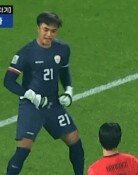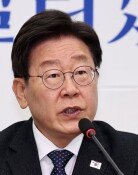Former Finance Minister Kang Bong-kyun passes away
Former Finance Minister Kang Bong-kyun passes away
Posted February. 02, 2017 06:59,
Updated February. 02, 2017 07:12
Former Finance Minister Kang Bong-kyun was an avid fan of go but had never reached a master level. Lee Young-tak, the chairman of World Future Form, who was a close friend and colleague of Kang, recalled his memory that Kang had never accepted his offer of giving two handicap stones. Most of the time, Kang lost the game against Lee but he always insisted a fair play when playing go. While working for the Economic Planning Board, Kang devoted his life at work seven days a week and often left office after midnight. Whether he was at work or enjoying leisure time, he never changed his mind-set and kept his principles. Kang served three terms in the National Assembly but he is recognized more as a government official than a politician because he was a man of principle.
After the Asian financial crisis broke out in 1997, the value of won sharply dropped. Against this backdrop, former Daewoo Group Chairman Kim Woo-choong said the company could even sell stones to foreign countries under the current currency environment and requested for the government’s assistance. Kang, who was serving as senior presidential secretary for economic affairs, declined the request. To Kang’s perspective, Kim was deviating from the principle of market. “The fall of Daewoo Group should be attributable to the failure of management system mostly driven by Kim alone,” Kang shared his view in the Korea Development Institute’s book entitled “The Korean Miracle IV.” Kang was clever enough to steer financial policies when risk sentiment prevailed due to the reform for Korea’s chaebol companies by the Kim Dae-jung administration.
Kang was diagnosed with pancreatic cancer three years ago. He seemed getting better after the surgery until 2015. When he was serving as the co-chairman of the election committee of the ruling Saenuri Party before the general elections on April 13 last year, he was dealing with recurred pancreatic cancer. He needed a full rest but he refused to get some rest. He was committed to salvaging the ruling party, which was standing on the brink of collapse. His friends and college mates from Seoul National University worried about Kang’s health weakening day after day. Kang introduced a series of policies, which was as speedy as cancer cells spreading. He was full of new and innovative ideas.
When Kang was fighting against cancer, the Dong-A Ilbo had a phone interview with him last year and asked why he pushed forward the unprecedented “Korean style quantitative easing.” “More than anything else, I needed to do something,” Kang responded. Kang has been at the forefront of Korea’s struggle during the financial crisis. Kang passed away on January 31. Public workers should remember Kang’s commitment and determination as a public servant and learn from him who said public workers should do something.







